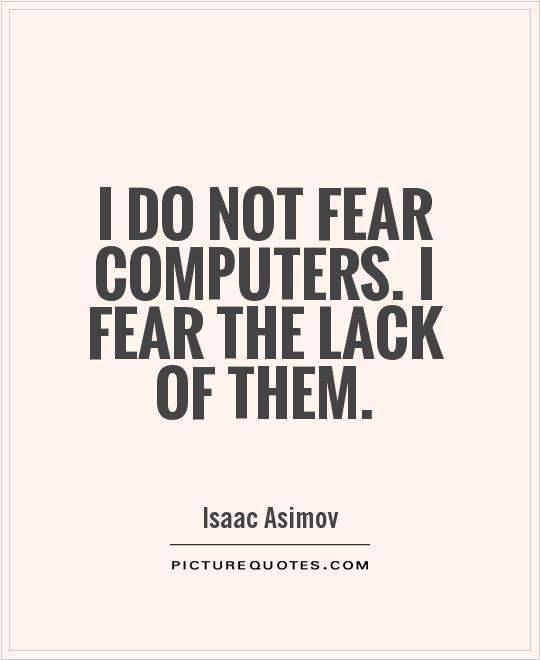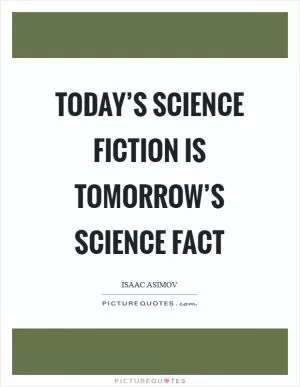I do not fear computers. I fear the lack of them

I do not fear computers. I fear the lack of them
Isaac Asimov, a renowned science fiction writer and biochemist, once famously said, “I do not fear computers. I fear the lack of them.” These words, spoken in the early days of the computer revolution, hold even more relevance in today’s technology-driven world. Asimov’s statement reflects his understanding of the immense potential that computers hold in shaping the future of humanity.In the context of Asimov’s words, it is important to recognize the pivotal role that computers play in our daily lives. From communication to transportation, healthcare to entertainment, computers have revolutionized every aspect of human existence. They have enabled us to connect with people across the globe, access vast amounts of information instantaneously, and automate tasks that were once time-consuming and labor-intensive. In essence, computers have become an indispensable tool for progress and innovation.
However, Asimov’s words also serve as a cautionary reminder of the dangers of being overly reliant on technology. As our dependence on computers grows, so too does our vulnerability to cyber threats, data breaches, and technological failures. The lack of proper cybersecurity measures can leave us exposed to malicious actors who seek to exploit our digital vulnerabilities for their own gain. Moreover, the overreliance on automation and artificial intelligence can lead to job displacement and economic instability, as machines increasingly replace human workers in various industries.
Despite these risks, the absence of computers would be even more detrimental to society. Without computers, we would lose the ability to communicate efficiently, access information quickly, and solve complex problems effectively. Our progress in fields such as science, medicine, and engineering would be severely hindered, as we would lack the computational power and data processing capabilities that computers provide. In essence, the lack of computers would stifle innovation, limit our potential for growth, and impede our ability to address the pressing challenges facing humanity.












 Friendship Quotes
Friendship Quotes Love Quotes
Love Quotes Life Quotes
Life Quotes Funny Quotes
Funny Quotes Motivational Quotes
Motivational Quotes Inspirational Quotes
Inspirational Quotes